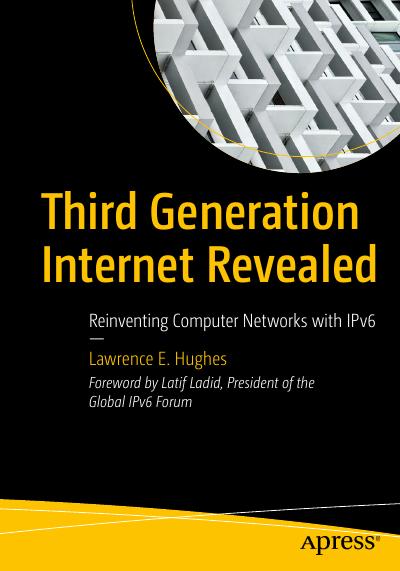
English | 2022 | ISBN: 978-1484286029 | 436 Pages | PDF, EPUB | 42 MB
This book covers the inexorable exhaustion of the IPv4 address space, the interim fix to this based on Network Address Translation (NAT) and Private Addresses, and the differences between IPv4 and IPv6. It will help you understand the limitations and problems introduced by the use of NAT and introduce you to the far simpler network and software designs possible, using a larger, unified address space.
IPv6, a mature and viable replacement for IPv4, is currently used by more than 36% of all global Internet traffic. Wireless telephone service providers in many countries have migrated their networks to IPv6 with great success. The elimination of NAT and Private Addresses has vastly simplified network design and implementation. Further, there are now enough public addresses allocated to accommodate all anticipated uses for the foreseeable future.
Most networking products and software, especially open-source software, are already fully IPv6 compliant. Today, no business should purchase obsolete products that support only IPv4. The global IPv6 Forum estimates that there are millions of networking professionals still needing to learn the fundamentals of IPv6 technologies to move forward. This book is for them. With plans in place for a shutdown of IPv4 on global networks (“Sunset IPv4”) the time to learn is now. If you want a job in IT, especially network hardware or software, and you don’t know IPv6, you are already obsolete.
What You Will Learn
- This book serves as a guide to all relevant Internet Engineering Task Force (IETF) standards Request for Comments (RFCs), organized by topic and discussed in plain language
- Understand how IPv6 makes viable technologies such as multicast (for efficient global audio/video streaming), IPsec VPNs (for better security), and simpler VoIP
- Take “edge computing” to the limit by eliminating intermediary servers made necessary by IPv4 NAT–for example, making connections directly from my node to yours
- Discover how organizations can introduce IPv6 into existing IPv4 networks (“Dual Stack”), and then eliminate the legacy IPv4 aspects going forward (“Pure IPv6”) for the mandates going into place now (for example, US DoD requirements to move all networks to Pure IPv6)
- Recognize that 5G networking (the Grand Convergence of conventional networks and wireless service) depends heavily on the advanced features IPv6
Resolve the captcha to access the links!